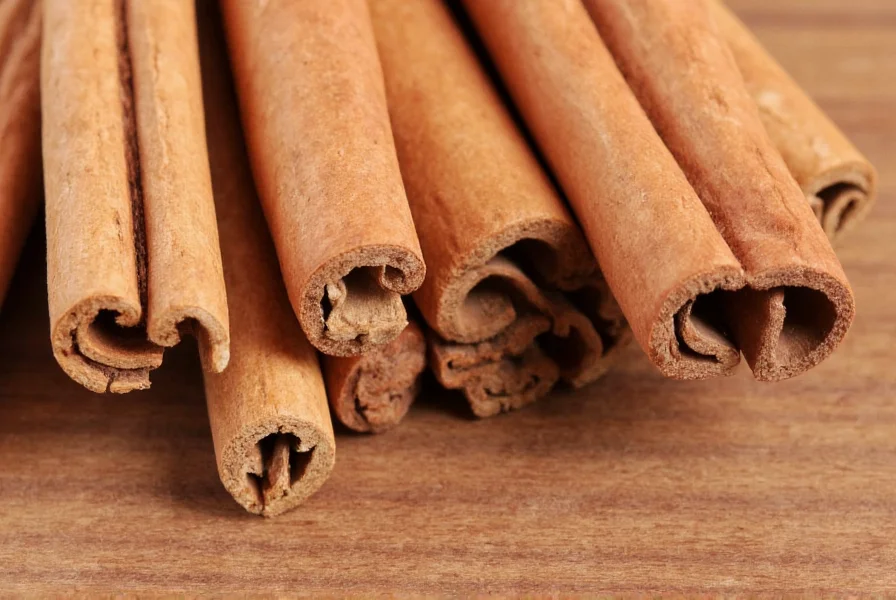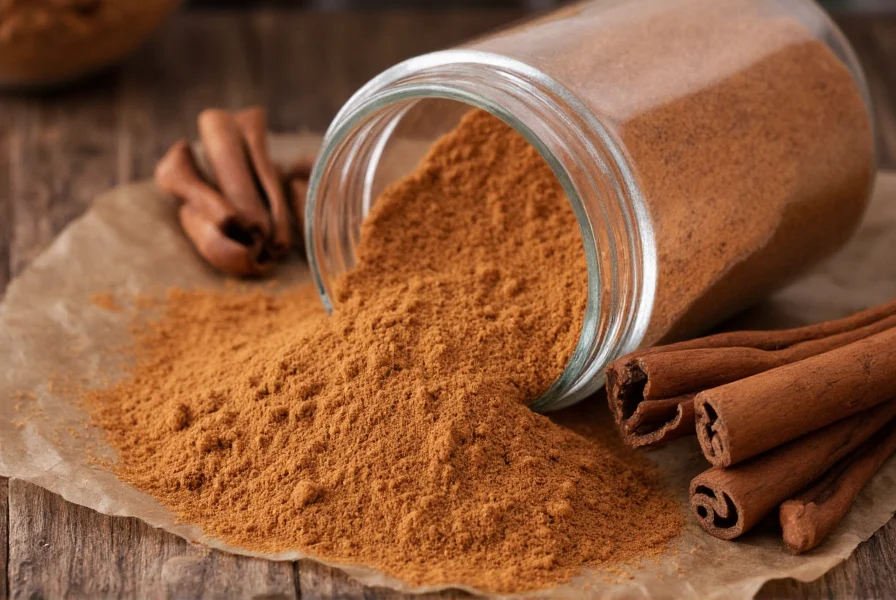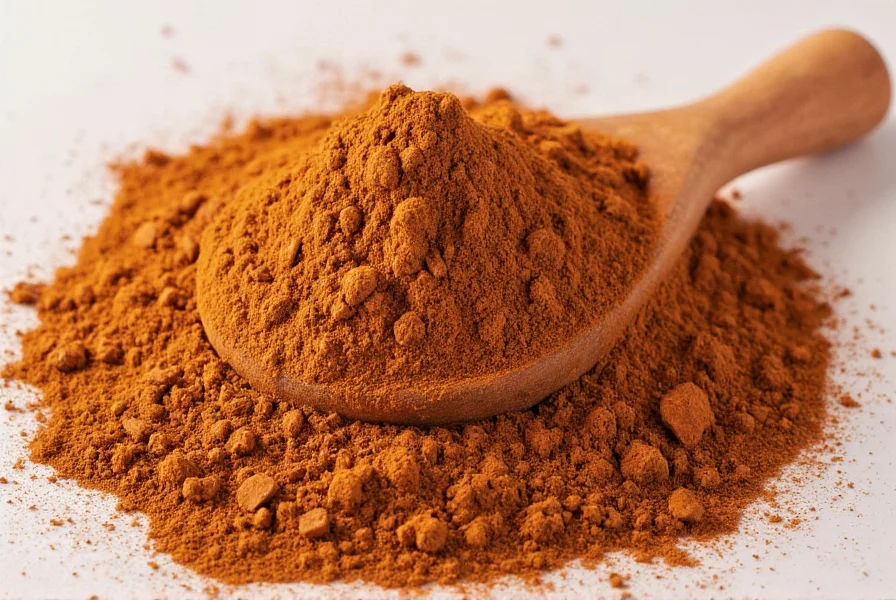When exploring ceylon cinnamon powder benefits, it's essential to understand what makes this spice unique in the culinary and wellness landscape. Unlike the more common Cassia variety found in most supermarkets, Ceylon cinnamon (Cinnamomum verum) originates from Sri Lanka and southern India, featuring a complex flavor profile with citrus notes and significantly lower levels of coumarin—a compound that can cause liver issues in high doses.
Understanding Ceylon vs. Cassia Cinnamon
Many consumers don't realize they're purchasing Cassia when they buy "cinnamon" at grocery stores. The key differences between these varieties impact both flavor and health considerations:
| Characteristic | Ceylon Cinnamon | Cassia Cinnamon |
|---|---|---|
| Scientific Name | Cinnamomum verum | Cinnamomum cassia |
| Coumarin Content | Approximately 0.017mg/g | Approximately 63.34mg/g |
| Flavor Profile | Mild, sweet, complex with citrus notes | Stronger, more pungent, spicier |
| Texture | Multiple thin, delicate layers | Thick, hard single layer |
| Price Point | Higher cost due to labor-intensive harvesting | More affordable and widely available |
Nutritional Composition and Active Compounds
The ceylon cinnamon powder nutritional profile reveals a wealth of beneficial compounds. Per teaspoon (2.6g), it contains approximately:
- 6 calories
- 2.1g carbohydrates
- 1.4g fiber
- 0.1g protein
- Traces of calcium, iron, and manganese
What makes Ceylon cinnamon particularly valuable are its bioactive compounds:
- Cinnamaldehyde (50-73%): Primary compound responsible for flavor and many health benefits
- Eugenol (5-10%): Contributes to antimicrobial properties
- Linalool (2-5%): Provides floral notes and potential calming effects
- Proanthocyanidins: Potent antioxidants with demonstrated free radical scavenging ability
Research-Supported Health Benefits
When evaluating ceylon cinnamon powder health benefits, scientific research provides valuable insights while acknowledging limitations. Unlike many wellness websites that overstate claims, credible research shows:
A 2020 meta-analysis published in Nutrition Research Reviews examined multiple studies on cinnamon's effects on blood sugar regulation. Researchers found that Ceylon cinnamon demonstrated modest improvements in fasting glucose levels (average reduction of 12.3 mg/dL) and HbA1c (0.26% reduction) among participants with type 2 diabetes, though effects varied significantly between studies.
Another area of promising research involves ceylon cinnamon powder antioxidant properties. A comparative study in the Journal of Agricultural and Food Chemistry found Ceylon cinnamon exhibited higher antioxidant capacity than many common spices, with an ORAC value of approximately 267,536 μmol TE/100g. These antioxidants may help combat oxidative stress, though human studies demonstrating direct health outcomes remain limited.
It's crucial to note that while laboratory and animal studies show potential benefits for inflammation reduction and cognitive function, human clinical evidence remains preliminary. Most health organizations recommend viewing cinnamon as a complementary dietary component rather than a treatment for medical conditions.
Safety Considerations and Recommended Intake
One of the most significant advantages of choosing Ceylon over Cassia is the dramatically lower coumarin content. Coumarin, present in much higher concentrations in Cassia cinnamon, can cause liver toxicity when consumed regularly in amounts exceeding 0.1 mg per kilogram of body weight.
For a 150-pound (68 kg) adult, this translates to a maximum safe daily intake of approximately 6.8 mg of coumarin. Given that Cassia cinnamon contains about 63 mg of coumarin per gram, consuming just one teaspoon could exceed safe limits. In contrast, Ceylon cinnamon's coumarin content (approximately 0.017 mg/g) makes it safe for regular consumption at culinary doses.
Most experts recommend limiting daily intake to 1-1.5 teaspoons (2-3 grams) of Ceylon cinnamon powder for general health purposes. Those with liver conditions or taking medications metabolized by the liver should consult healthcare providers before regular consumption.
Practical Usage Guidelines
Understanding how to use ceylon cinnamon powder effectively maximizes both flavor and potential benefits. Unlike Cassia, which can overpower dishes, Ceylon's delicate flavor works well in both sweet and savory applications:
- Add to morning coffee or tea (¼-½ teaspoon)
- Mix into oatmeal, yogurt, or smoothies
- Use in baking recipes requiring subtle spice notes
- Incorporate into savory dishes like Moroccan tagines
- Create homemade chai blends
For maximum freshness and potency, purchase whole Ceylon cinnamon sticks and grind them as needed using a dedicated spice grinder. Pre-ground powder loses volatile compounds more quickly.

Proper Storage Techniques
To maintain the quality of your ceylon cinnamon powder storage, follow these evidence-based recommendations:
- Store in an airtight container away from light and heat
- Keep in a cool, dark cupboard (not near the stove)
- Ground cinnamon retains optimal flavor for 6-12 months
- Cinnamon sticks maintain quality for 2-3 years when properly stored
- Avoid refrigeration due to moisture risks
Research published in the Journal of Food Science demonstrates that proper storage significantly preserves the volatile compounds responsible for cinnamon's flavor and potential health benefits. Exposure to light and oxygen accelerates the degradation of cinnamaldehyde and other beneficial compounds.

Making Informed Choices
When selecting where to buy ceylon cinnamon powder, look for products that clearly specify "Cinnamomum verum" or "Ceylon" on the label. Many products misleadingly use "true cinnamon" without actually containing Ceylon variety. Reputable suppliers often provide information about origin and may include third-party testing results for coumarin content.
Price can serve as a rough indicator—authentic Ceylon cinnamon typically costs 2-3 times more than Cassia due to more labor-intensive harvesting methods. Be wary of "Ceylon" cinnamon sold at prices comparable to standard grocery store cinnamon, as it's likely mislabeled.
Frequently Asked Questions
What's the main difference between Ceylon and Cassia cinnamon powder?
The primary difference is coumarin content—Ceylon contains approximately 0.017mg/g while Cassia contains about 63mg/g. Ceylon also has a more delicate flavor, lighter color, and multiple thin bark layers compared to Cassia's thick, hard single layer.
How much Ceylon cinnamon powder can I safely consume daily?
Most experts recommend 1-1.5 teaspoons (2-3 grams) daily for general health purposes. This amount provides potential benefits while keeping coumarin intake well below safety thresholds, even for regular consumption.
Does Ceylon cinnamon powder lower blood sugar effectively?
Research shows modest improvements in blood sugar markers, with studies reporting average fasting glucose reductions of about 12 mg/dL and HbA1c reductions of 0.26% in people with type 2 diabetes. However, it should complement—not replace—standard diabetes management approaches.
Why is Ceylon cinnamon more expensive than regular cinnamon?
Ceylon cinnamon requires more labor-intensive harvesting methods, comes from a specific tree variety primarily grown in Sri Lanka, and has lower yield per tree compared to Cassia. The careful peeling process for the delicate inner bark also contributes to higher production costs.
How can I verify I'm buying authentic Ceylon cinnamon powder?
Look for products specifying 'Cinnamomum verum' or 'Ceylon' on the label, check for a lighter tan color (vs. dark brown of Cassia), and expect to pay a premium price. Reputable suppliers often provide origin information and may include third-party testing results for coumarin content.











 浙公网安备
33010002000092号
浙公网安备
33010002000092号 浙B2-20120091-4
浙B2-20120091-4